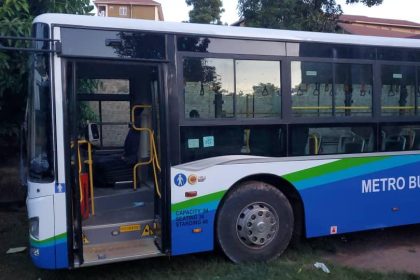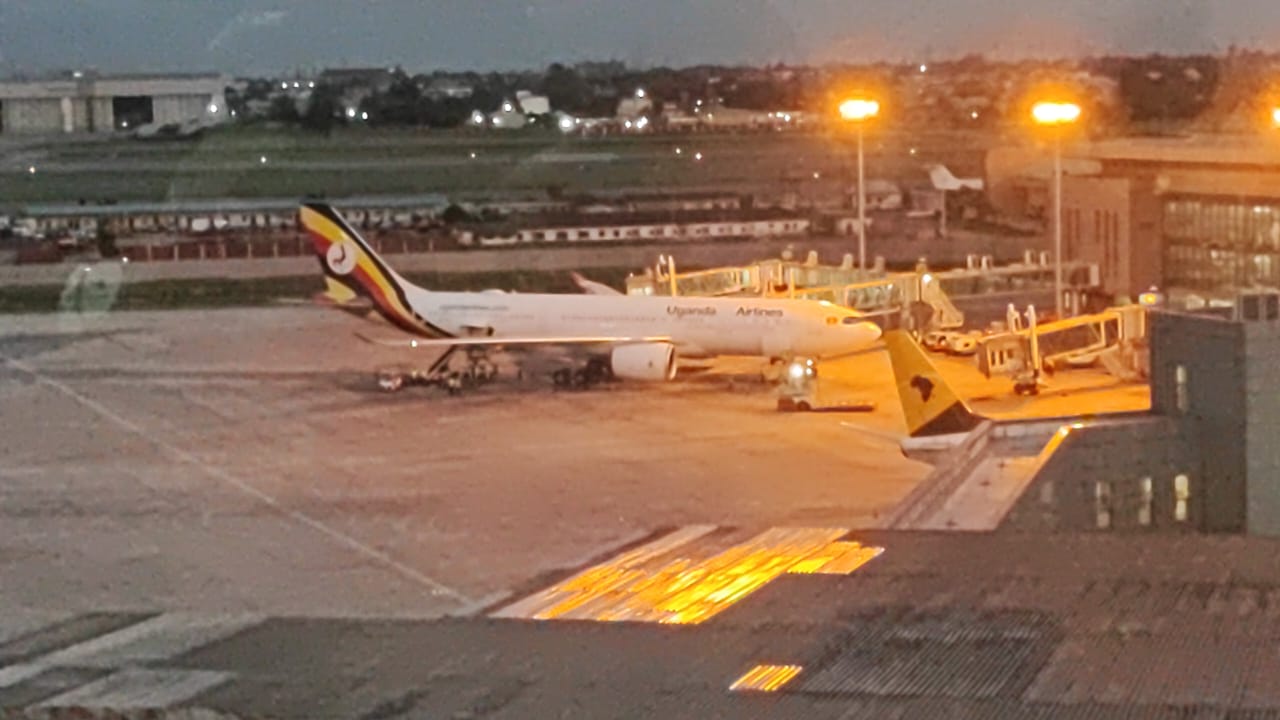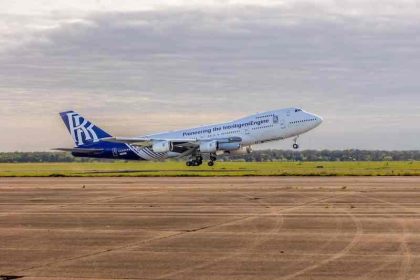Rare insights into Uganda aviation market at UCAA air services license meeting

Riding the crest of surging passenger traffic, an ICAO Universal Safety Oversight Audit Program in which it scored 72.2 pc last November and a related Universal Security Audit Program in January which found “no significant concerns”, the Uganda Civil Aviation Authority Board had every reason to be in buoyant spirits, as it held its 50th Air Services License Committee meeting on March 7.
Deputy Director General Olive Birungi Lumonya, set the ball rolling highlighting the 1.9 million passengers registered during calendar 2023, the 1918 delegates to the twin G77+ China and NAM Summits which took the newly launched extension to the passenger terminal through its paces, as achievements to be proud of.
The results were a big comeback from the disruptions of Covid 19, and way above pre-pandemic levels. Cargo is projected at 80,000 tons for 2024, just 20pc short of the design capacity of the newbuild cargo terminal. With numbers looking up, a review of the masterplan is ongoing.
UCAA board chair, retired Justice Steven Kavuma, added that the regulator had concluded new Bilateral Air Services Agreements (BASAs) with 6 additional countries, opening new opportunities for operators and more connectivity for landlocked Uganda.
“The way we performed (in the ICAO audits), reflects how the management at UCAA has been performing. But it also mirrors the conduct of the stakeholders,” Kavuma told the 7 operators who were lined up to defend their license applications.
Uganda Airlines
 Flag carrier Uganda Airlines laid out its near-term growth plans, revealing that it had secured Flight Operators Permits for Abuja, Lusaka, Harare Jeddah and Riyadh, destinations it expects to add to the network in the coming months. Plans are also afoot to launch a second destination in India besides Mumbai, while efforts to launch London and Guangzhou continue.
Flag carrier Uganda Airlines laid out its near-term growth plans, revealing that it had secured Flight Operators Permits for Abuja, Lusaka, Harare Jeddah and Riyadh, destinations it expects to add to the network in the coming months. Plans are also afoot to launch a second destination in India besides Mumbai, while efforts to launch London and Guangzhou continue.
Addressing the meeting that also heard applications from six other operators, Uganda Airlines chief executive Ms Jenifer Bamuturaki gave insights into the airlines’ operations, indicating that the headcount had reached 568 across the network, with 96pc of them nationals. Gender parity is at 60:40 in favour of males but well above the industry target of 25pc by 2025.
Revenues have registered a compound annual growth rate (CAGR) of 50.9 from USD 10.4m in 2019 to USD 63.4m in fiscal 2022/23. UGX 120bn has been paid out to local suppliers since the start of operations in August 2019.
The carrier which currently operates 13 routes, carried 0.3million passengers over the same accounting period with load factors averaging 63pc. Projections for the current operating year which ends in June, point to 0.45 million passengers.
The A330 fleet has carried 1.9m kilograms of cargo since cargo operations were launched in November 2021, with Dubai contributing most of the weight.
The fleet is projected at 10 aircraft by 2032/33 with the first pair of growth aircraft expected to have joined the fleet by June 2025.
Other applicants
 Other applicants at the hearing included Kajjansi-based Kampala Executive Aviation, Eagle Air and Mission Aviation Fellowship. The latter two – MAF and Eagle Air- share the distinction of being the longest serving domestic operators in Uganda.
Other applicants at the hearing included Kajjansi-based Kampala Executive Aviation, Eagle Air and Mission Aviation Fellowship. The latter two – MAF and Eagle Air- share the distinction of being the longest serving domestic operators in Uganda.
MAF which operates non-commercial charity flights using a fleet of Cessna 182, 206 and 208 series has been in Uganda since 1986. It carried 6000 passengers in 2023 and plans to acquire a floatplane to be able to offer services to the numerous hard to reach islands of Lake Victoria.
Eagle Air which was seeking renewal of its license for scheduled passenger and cargo services, will celebrate 30 years of operation on June 24. It has a fleet of six aircraft, besides owning a maintenance hangar at the Old Entebbe Airport. It was also seeking a license for aerial surveys and already has active clients in the region.
Recent entrant Kush Air with a foreign registered Fokker 50 and a locally registered Let410. Kush which plans to operate the Entebbe Juba route also has a pair of Bombardier Dash 100s and id in negotiations for a B737-300 and an Embraer jet.
Aero Maintenance which entered the market last May seeking to establish MRO services covering the Beechcraft 1900, Fokker 50 and Bombardier Dash 100-400 based at Entebbe, also wants a pie of the passenger market. The company applied for an Air operator certificate allowing it to operate non-scheduled domestic passenger and cargo services.
A thorn in the flesh
Sounding relaxed and jovial as usual, board chair Kavuma, encouraged the applicants to air any challenges they might have faced in their interactions with the regulator.
Top of these it turned out, is the burden of bearing the cost of getting UCAA aircraft inspectors rated for aircraft types for which they hold no active rating. According to one of the operators, this squashes smaller startup operators because it eats a lot into their capital. Attendant to that is the risk that once the inspectors have been rated, bigger competitors will bring in their fleets for inspection on the cheap. This tilts the ground against those that had to bear the initial costs of domesticating the inspectors’ capacity.
Applicants seeking to join the MRO business, cited space for setting up base as an emerging becoming a constraint.

 Saudia’s 105 aircraft order stretches A320neo lead over rival Max
Saudia’s 105 aircraft order stretches A320neo lead over rival Max
 Entebbe in race against time as passenger traffic overruns capacity
Entebbe in race against time as passenger traffic overruns capacity
 Commuter bus operator Tondeka Metro loses city commuter business in web of intrigue
Commuter bus operator Tondeka Metro loses city commuter business in web of intrigue
 Uganda Airlines likely to miss Spirit A320neo delivery slots
Uganda Airlines likely to miss Spirit A320neo delivery slots
 Rolls-Royce Pearl 10X engine takes flight
Rolls-Royce Pearl 10X engine takes flight
 Kabalega International Airport Community Engagement Model: Blueprint for Sustainable Development
Kabalega International Airport Community Engagement Model: Blueprint for Sustainable Development
